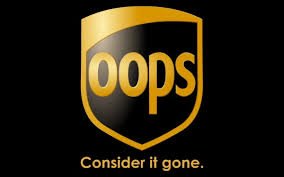What You Should Know Before Opening A Ecommerce Store
You think you are prepared to launch an online retail business. You’ve got the cash flow planned, inventory and funding. You’ve even done a marketing campaign that you are ready to launch. However; there are important variables that you must know before you start operating your business.
U.S. ecommerce sales grew 13 percent last year to some $289 billion, including travel, according to trend tracking firm comScore. In the first quarter of this year, online spending in the U.S. had already exceeded $78 billion, again according to comScore, making ecommerce the fastest growing retail segment. And the evidence is compelling that this segment will continue to grow exponentially.
A significant amount of growth came from large retailers like Amazon and Walmart, however; many small retailers selling items on marketplaces like Etsy or via nearly turnkey ecommerce solutions like Shopify or Volusion have also made an impact. The small ecommerce entrepreneurs can and do, in many cases, enjoy success and life-changing profitability. All of these small businesses need to have a handle, if you will on the business of being in business. Including accounting, operations and marketing. However; these are areas that many new business owners are prepared to oversee, and business surprises come from other quarters.
1. The Customer Is Always Right, But Not Necessarily Always Nice
Ecommerce is a service business. The goal is to help shoppers find good products and deliver those products in a convenient way. Many new ecommerce businesses seek to provide exceptional customer experiences — in keeping with companies like Zappos — going beyond what some shoppers expect.
For example, there is a retailer in the Pacific Northwest that recently received a customer request. A laboratory in Southern California wanted to grow algae as part of an alternative fuel project. The lab required large water troughs, similar to what you might use in livestock operations, only made of transparent plastic so that sunlight could easily penetrate. Local brick-and-mortar stores told the lab that no such product existed. Water troughs, they said, are specifically made not to grow algae. But the online retailer contacted a manufacturer and arranged for a special run of clear water troughs. The lab was very pleased and the retailer made a large sale. Unfortunately, this is not how every customer contact will go.
There will be plenty of times when you will put customers first, trying to please them, and they will be mean and nasty to you.
I’m aware of a retailer that recently started processing an order for a closeout item, only to discover that the product was damaged and not worthy to be shipped to the customer. Although the item has sold for less than the retailer’s cost because it was discontinued, a store representative contacted the manufacturer, which was no longer making the item, and even tried to find one at competitors’ online stores, only to learn that there simply were not any more to be had. The retailer contacted the customer, explained what had happened, and offered a $50 gift card for her trouble. The customer — in response — yelled profanities over the telephone and placed a visceral message on the retailer’s Facebook page. At one point, she even asked the retailer for $1,000.
2. Carriers Eat Packages
FedEx, UPS, and the U.S. Postal Service generally provide good shipping services, but these carriers also lose packages, and often they lose them when it matters the most.
Nearly a decade ago, I opened a specialty online toy store in early February. That month is a generally slow time in retailing, and I wanted to ensure that all departments, including order fulfillment, were working well. By July, shipping was running smoothly, items flowing out and being delivered right on time. All of the carriers — the retailer used FedEx, UPS, and the Postal Service — seemed like they could do no wrong.
But in November and December of that first year, carriers lost something like 11 percent of my packages. The carriers seemed to eat them. One post office in New York State lost ten out of ten packages that it processed from for the company —if memory serves — including a second and third attempt to get products to one particular customer.
That same holiday season, UPS returned two large boxes to us — each had contained a Radio Flyer Rock and Bounce pony — that had been crushed. One had the clear imprint of a large work boot on it.
Annually, new and established online sellers will see dozens or even hundreds of packages that fail to arrive — lost or damaged in the conveyor belts and trucks meant to carry them to customers. Be prepared to manage both the cost of lost items and the problem of disappointed customers.
3. Fraud Is Everywhere
Earlier this month, a retailer I know had a large order for more than $5,000. The sale included a gas-powered generator that was to be sent across the country via second day shipping. PayPal and American Express had authorized the sale. But something didn’t seem right. The generator was not uncommon. It could be purchased almost anywhere. So why would you pay, in this case, $1,600 for express shipping?
The retailer researched the order. The phone number on the order rang to a mobile phone with a full voice mailbox and a generic message. The billing address didn’t match what American Express had on file. So the retailer canceled the order. This is a smart move when you consider that online fraud cost ecommerce retailers an estimated $3.5 billion in 2012, according to CyberSource, which provides payment and risk management solutions and is part of the Visa family of companies.
Don’t assume that your company, however small, is immune to fraud. In some cases, criminals assume that small retailers are less sophisticated and, therefore, easier targets.
4. Be Explicit; No One Reads
One of the most surprising things you find about running an ecommerce business is that you need to be amazingly explicit when you describe products, offers, and policies. Many, if not all of your customers, will skim over this material and misunderstand what you meant or intended.
Take the case of a recent online contest that a retailer used to promote a particular brand of jeans. Entrants could win a $100 shopping spree for submitting a photo of themselves in a pair of jeans. All of the promotional material associated with the contest clearly stated, “You will need to upload a picture of yourself in a pair of jeans.” A number of Facebook posts also informed the would-be entrants that they would need to upload a picture of themselves in a pair of jeans. An email included the statement.
The web form used to enter the contest also said, “You will need to upload a picture of yourself in a pair of jeans.” And yet, of the many entries received, not a single user actually uploaded a jean picture. Some uploaded family pictures of folks in shorts, others included pictures of dogs.
Ultimately, many of those who entered the contest were angry, arguing that the instructions had not been clear.
5. You’ll Never Run Out of Opportunities
The last thing to know about ecommerce is that it never seems to run out of opportunities. You will have your share of problems with inventory management, accounting, website design, and upset customers. But this is a great industry with the potential to help you achieve your goals.







